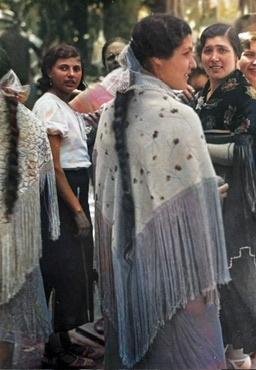What are some examples of Mallorcan literature or oral storytelling that reflect the island’s cultural preservation?
Similar Topics
mallorcan literature
oral storytelling
miquel costa i
mallorcan identity
antoni m. alcover
traditional tales
mallorcan catalan
cultural preservation
Mallorcan literature and oral storytelling serve as vibrant windows into the island’s unique cultural heritage, capturing the essence of its history, traditions, and language. One notable example is the work of the Mallorcan poet and novelist Miquel Costa i Llobera, whose writings in Catalan beautifully evoke the landscapes and spirituality of the island. His poetry often reflects a deep connection to Mallorcan identity and the Mediterranean environment, representing an essential link between the island’s past and present cultural expressions. Similarly, the 19th-century writer and folklorist Antoni M. Alcover made a significant contribution by collecting traditional Mallorcan tales and legends. His dedication to recording oral traditions helped preserve stories that had been passed down through generations, safeguarding the island’s intangible heritage.
Oral storytelling remains a cherished part of Mallorcan culture, frequently celebrated through local festivals and communal gatherings. Stories involving mythical figures such as the “Dimoni” (demon) or the “Pastorets” (shepherds) often appear in these narratives, capturing the imagination of both young and old while reflecting historical struggles and local beliefs. These tales not only entertain but also reinforce community values and the distinct dialect of Mallorcan Catalan, which is a vital aspect of cultural preservation. The continued practice of storytelling, alongside written literature, ensures that Mallorcan cultural identity is dynamically passed on, linking past generations with the present.
Through literary works and oral traditions, Mallorca maintains a rich cultural dialogue that honors its historical roots and fosters pride in local heritage. Visitors exploring the island can often find references to these stories and authors in museums, cultural centers, and even local markets, highlighting how deeply ingrained storytelling is in the Mallorcan way of life. Whether experienced through the written word or the spoken narrative, these forms of cultural expression provide an authentic and insightful perspective on the island’s enduring spirit.
Oral storytelling remains a cherished part of Mallorcan culture, frequently celebrated through local festivals and communal gatherings. Stories involving mythical figures such as the “Dimoni” (demon) or the “Pastorets” (shepherds) often appear in these narratives, capturing the imagination of both young and old while reflecting historical struggles and local beliefs. These tales not only entertain but also reinforce community values and the distinct dialect of Mallorcan Catalan, which is a vital aspect of cultural preservation. The continued practice of storytelling, alongside written literature, ensures that Mallorcan cultural identity is dynamically passed on, linking past generations with the present.
Through literary works and oral traditions, Mallorca maintains a rich cultural dialogue that honors its historical roots and fosters pride in local heritage. Visitors exploring the island can often find references to these stories and authors in museums, cultural centers, and even local markets, highlighting how deeply ingrained storytelling is in the Mallorcan way of life. Whether experienced through the written word or the spoken narrative, these forms of cultural expression provide an authentic and insightful perspective on the island’s enduring spirit.
🧩 Related Questions
Related Question
How can visitors find authentic Trempo dishes while dining in Mallorca?
Related Question
Which areas in Mallorca are recommended for kayaking and exploring marine life?
Related Question
What makes organic wineries in Mallorca different from conventional ones in terms of wine flavor and quality?
